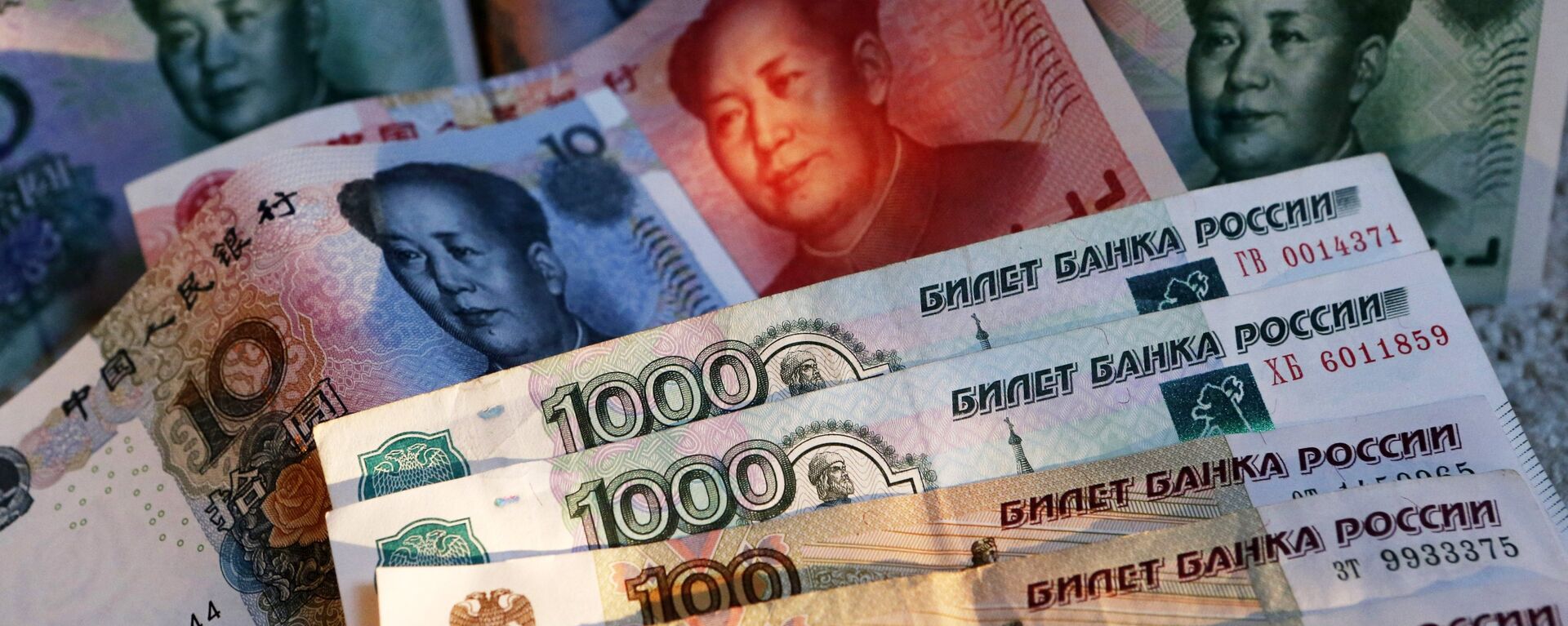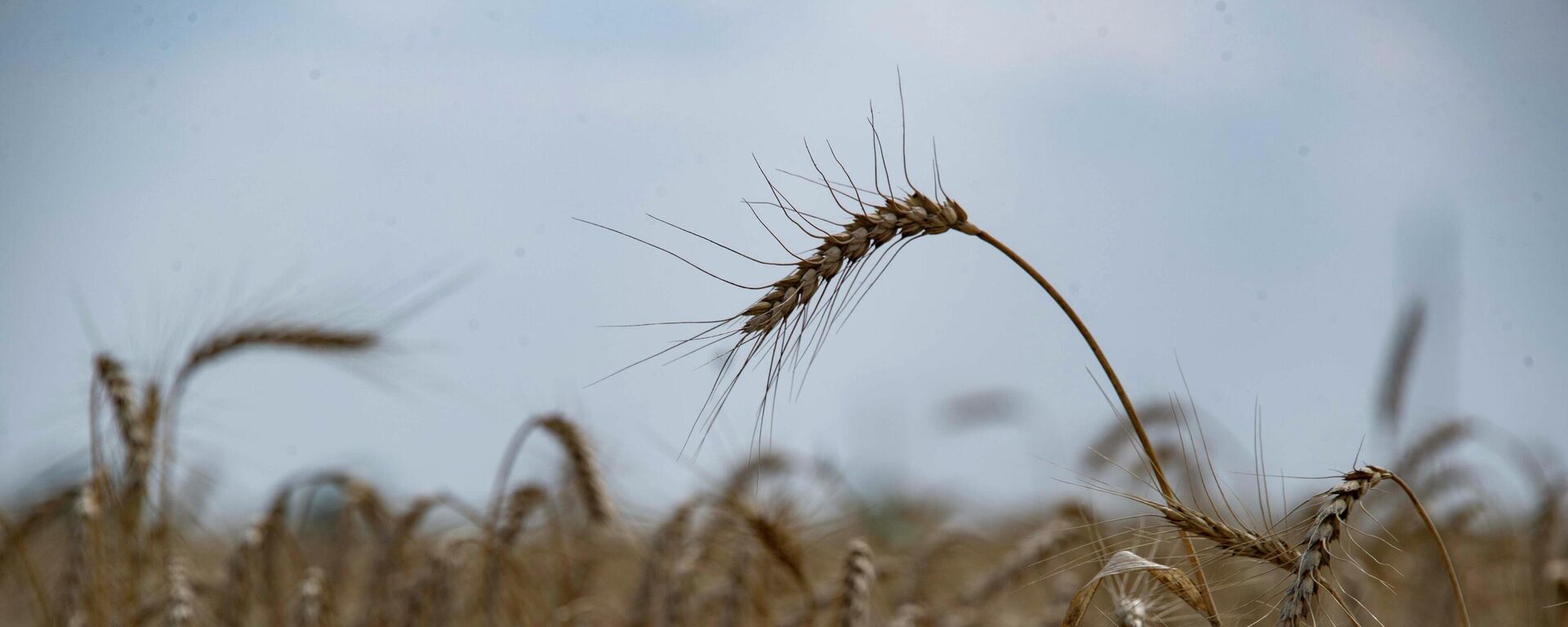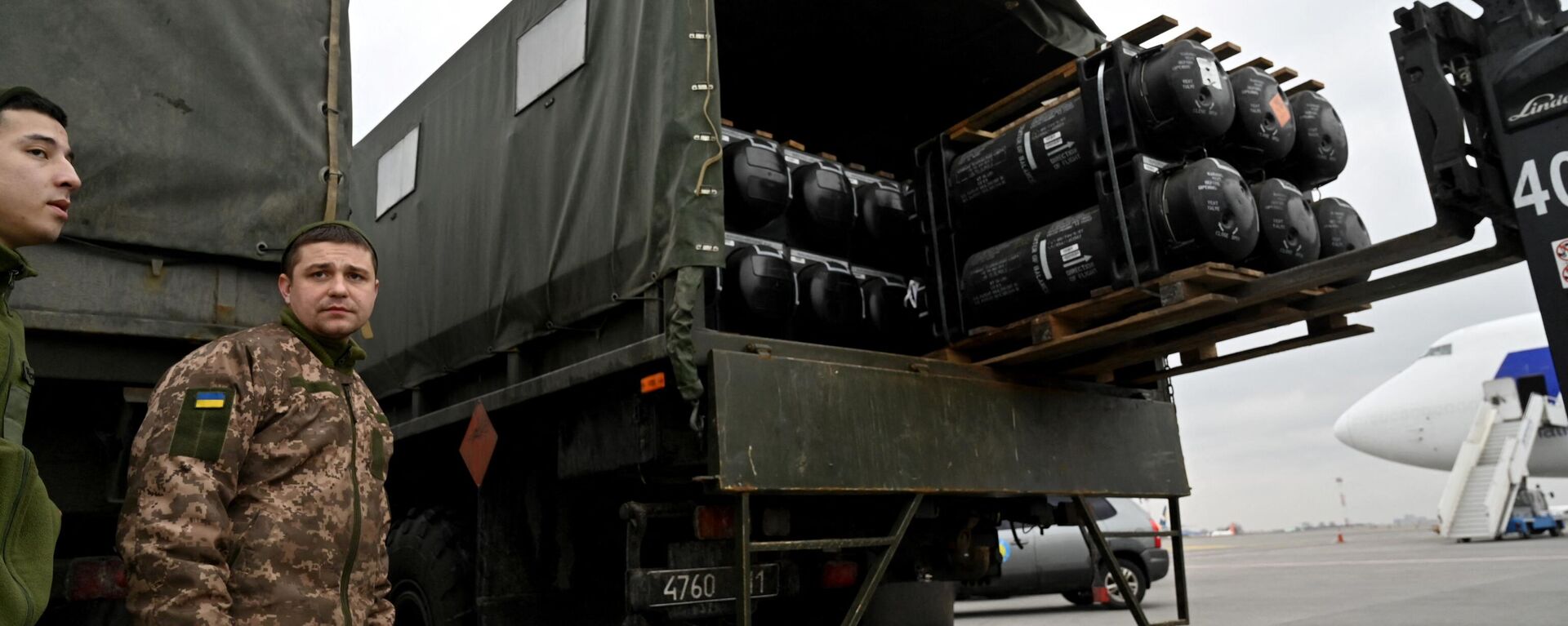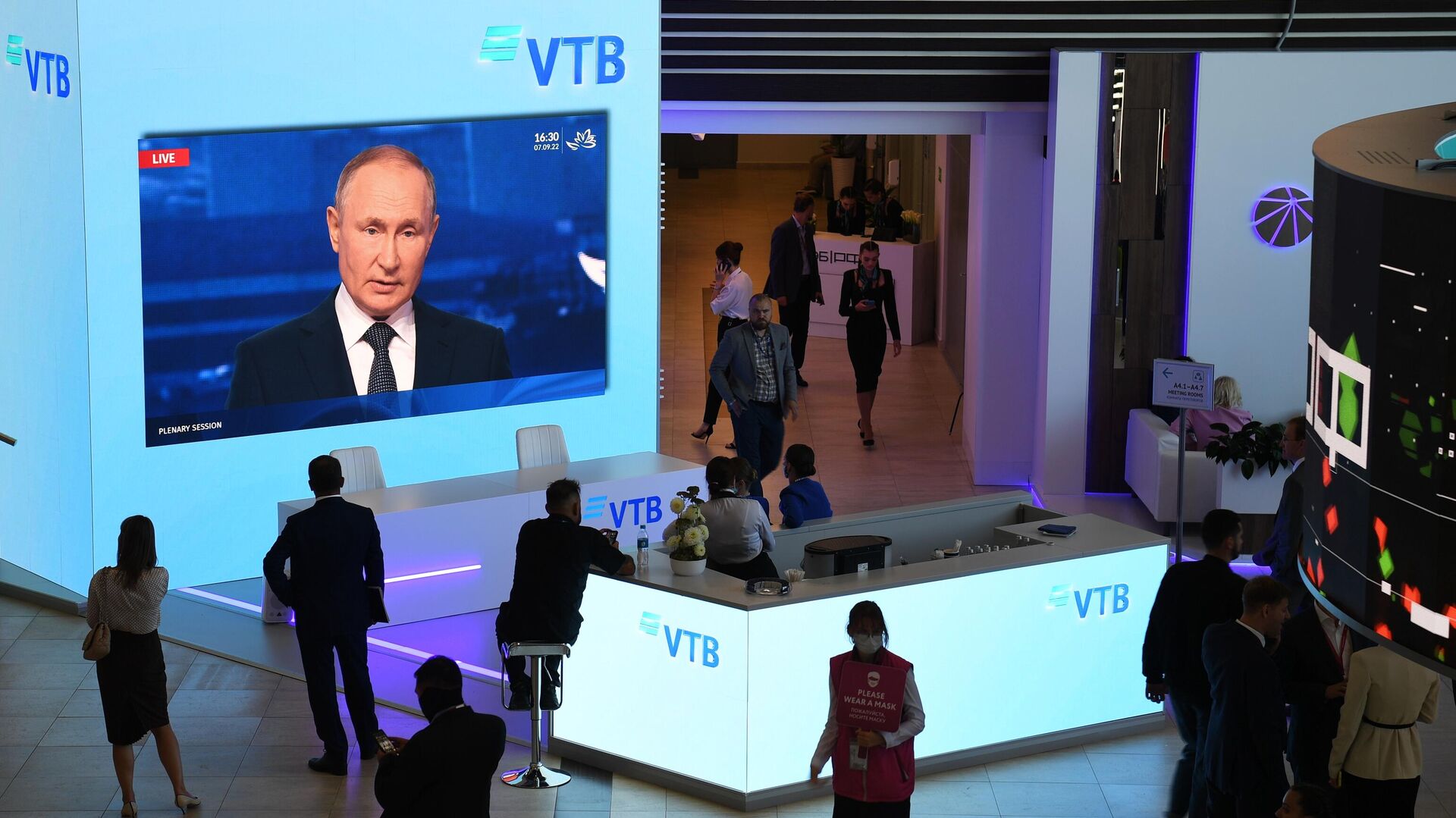https://sputnikglobe.com/20220907/easts-rise-irreversible-west-speeding-up-own-decline-via-indiscriminate-sanctions-scholars-say-1100507574.html
East's Rise Irreversible, West Speeding Up Own Decline Via Indiscriminate Sanctions, Scholars Say
East's Rise Irreversible, West Speeding Up Own Decline Via Indiscriminate Sanctions, Scholars Say
Sputnik International
Russian President Vladimir Putin delivered a keynote address at the Eastern Economic Forum's (EEF) plenary session titled "On the Path to a Multipolar World"... 07.09.2022, Sputnik International
2022-09-07T15:53+0000
2022-09-07T15:53+0000
2023-05-28T15:20+0000
analysis
us
europe
russia
asia
vladimir putin
energy
natural gas
ukraine
oil
https://cdn1.img.sputnikglobe.com/img/07e6/09/07/1100474824_0:0:3083:1734_1920x0_80_0_0_c7cc3df2a31e30d357de820debc402e4.jpg
"Asian economies have been rising substantially over the past decades, which means the axis of power is shifting towards the Asian continent," says Alexander Clackson, founder of Global Political Insight, a UK-based think tank. "This trend is likely to continue. For now, most Asian countries are happy to continue cooperating with Russia through trade. It is likely that Russia will aim to position itself alongside China as the leader of new world structures that are not Western-centric and incorporate developing and emerging nations."Speaking at the EEF on Wednesday, Vladimir Putin emphasized that the role of dynamic, developing states and regions of the world has significantly increased. Countries of the Asia-Pacific have become "new centers of economic and technological growth, points of attraction for personnel, capital, production," the Russian president noted. The West's attempts to retain its power through unilateral sanctions, unfair trade mechanisms and outright threats have only accelerated the world's shift from the Western-centric order to multipolarity, according to Putin.China, currently the world’s second-largest economy, is expected to outperform the US economy in terms of GDP by 2030, according to the Center for Economics and Business Research (CEBR). Likewise, India has outpaced the UK to become the world's fifth-largest economy and is now behind only the US, China, Japan, and Germany.Asia's developing giants are increasing the consumption of oil and gas, dismissing the West's demand to join the anti-Russia energy embargo as contradicting their national and economic interests. Western countries have imposed unprecedented restrictions on Russia following the beginning of Moscow's special operation to demilitarize and de-Nazify Ukraine.Thus, in particular, Russian and Chinese energy giants, Gazprom and the China National Petroleum Corporation (CNPC), have been stepping up cooperation and have recently agreed to make payments for gas supplies in rubles and yuan in a 50/50 ratio, Putin unveiled on Wednesday.While the EU is pledging to cut reliance on Russian hydrocarbons, China is set to increase purchases of Russian natural gas to 48 billion cubic meters (bcm) per year. The construction of the Power of Siberia 2 gas pipeline will provide the People's Republic with another 50 bcm of gas annually. National oil company Sinopec projects Chinese natural gas demand will reach 395 bcm in 2022, up 7% from 370 bcm in 2021. China's total gas consumption may reach 430-450 bcm in 2025, according to the National Energy Administration (NEA). For comparison's sake, in 2021 the European Union imported 155 bcm of natural gas (including in liquid form) from Russia, which accounted for around 45% of EU gas imports.The Decline of the WestThe West's attempt to hinder the rise of new power centers cannot prevent its own decline, according to the observers. According to Trifkovic, the demise of the Western-centric system started nearly 23 years ago.Germany is likely to be hit the most after suspending the Nord Stream 2 project and joining the US-UK's anti-Russia energy embargo, according to the analyst.Russia accounted for 55% of Germany's total gas imports in 2021 and 40% in the first quarter of 2022, according to Reuters. Eventually, the share of Russian gas dropped to just 26% at the end of June 2022, the German Economy Ministry stated on July 20."Germany, as the most economically developed country in Europe, achieved such success largely thanks to cheap Russian gas, on which its industry developed," Trifkovic says. "I think that era is over and that the German economy will no longer be able to count on cheap Russian gas, and there is currently no adequate alternative to replace Russian gas. In perspective, with such a major reset, it takes years to find alternative directions."What's more, it appears that "Western countries do not have a strategic plan to avoid further tendencies of the decline of economic and political power," according to the Serbian think tank director. The US, EU, and UK have so far failed to tame record-high inflation, as soaring energy prices are accelerating the trend. As Western countries' central banks have resorted to interest rate hikes, the developed nations are now teetering on the brink of recession.EU Sacrificing Its People for Sake of US"Numerous countries in the West are already unhappy with the situation they are in, particularly regarding the energy crisis," Clackson says.Economic observers believe that the current energy crisis started long before the beginning of the Russian special operation in Ukraine and was largely triggered by Western "green" policies and COVID-related economic slowdown. However, anti-Russia sanctions spearheaded by Washington have added fuel to the fire, with the Old Continent's economy sustaining more damage than that of the US. During his Wednesday address, Vladimir Putin argued that in fact, Europe has sacrificed its own interests, the security of its economy, and currencies for the sake of maintaining US hegemony.Europe did sacrifice its interests, but there is growing opposition to this policy among EU citizens, according to Trifkovic. Numerous protests in European cities confirm that people are dissatisfied, she notes.The question then arises as to whose interests the German minister represents, Trifkovic notes. Still, the EU establishment cannot ignore the people's needs indefinitely as discontent is continuing to grow, she notes, adding that this situation will lead to an inevitable change of political elites in Europe.
https://sputnikglobe.com/20220907/putin-russias-gazprom-chinas-cnpc-to-make-gas-payments-in-rubles-yuan-in-5050-ratio-1100485643.html
https://sputnikglobe.com/20220907/putin-erdogan-may-discuss-grain-deal-on-sidelines-of-sco-summit-in-samarkand-source-says-1100479550.html
https://sputnikglobe.com/20220824/why-ukraine-risks-becoming-europes-graveyard-despite-uk--eu-putting-on-brave-face----1099953941.html
russia
ukraine
united kingdom (uk)
Sputnik International
feedback@sputniknews.com
+74956456601
MIA „Rosiya Segodnya“
2022
News
en_EN
Sputnik International
feedback@sputniknews.com
+74956456601
MIA „Rosiya Segodnya“
Sputnik International
feedback@sputniknews.com
+74956456601
MIA „Rosiya Segodnya“
us, europe, russia, vladimir putin, energy, natural gas, ukraine, oil, inflation, united kingdom (uk)
us, europe, russia, vladimir putin, energy, natural gas, ukraine, oil, inflation, united kingdom (uk)
East's Rise Irreversible, West Speeding Up Own Decline Via Indiscriminate Sanctions, Scholars Say
15:53 GMT 07.09.2022 (Updated: 15:20 GMT 28.05.2023) Exclusive
Russian President Vladimir Putin delivered a keynote address at the Eastern Economic Forum's (EEF) plenary session titled "On the Path to a Multipolar World" on September 7 in Vladivostok. The president emphasized the historic shift of decision-making centers from the West to the East.
"Asian economies have been rising substantially over the past decades, which means the axis of power is shifting towards the Asian continent," says Alexander Clackson, founder of Global Political Insight, a UK-based think tank. "This trend is likely to continue. For now, most Asian countries are happy to continue cooperating with Russia through trade. It is likely that Russia will aim to position itself alongside China as the leader of new world structures that are not Western-centric and incorporate developing and emerging nations."
Speaking at the EEF on Wednesday, Vladimir Putin emphasized that the role of
dynamic, developing states and regions of the world has significantly increased. Countries of the Asia-Pacific have become "new centers of economic and technological growth, points of attraction for personnel, capital, production," the Russian president noted. The West's attempts to retain its power through unilateral sanctions, unfair trade mechanisms and outright threats have only accelerated the world's shift from the Western-centric order to multipolarity, according to Putin.
"Such a change occurred after the rapid development of Asian economies, to which the West contributed to a large extent," says Dragana Trifković, director of the Center for Geostrategic Studies, Serbia. "The transfer of production from the West to Asia, in order to obtain higher profits for Western companies, was strategically a key factor that led to the economic primacy of Asia, primarily China. Such a process is not reversible, and it also initiated other processes that led to the transition to a multipolar world order."

7 September 2022, 10:00 GMT
China, currently the world’s second-largest economy, is expected to outperform the US economy in terms of GDP by 2030,
according to the Center for Economics and Business Research (CEBR). Likewise, India has outpaced the UK to become the world's fifth-largest economy and is now behind only the US, China, Japan, and Germany.
Asia's developing giants are increasing the consumption of oil and gas, dismissing the West's demand to join the anti-Russia energy embargo as contradicting their national and economic interests. Western countries have imposed unprecedented restrictions on Russia following the beginning of Moscow's special operation to demilitarize and de-Nazify Ukraine.
Thus, in particular, Russian and Chinese energy giants, Gazprom and the China National Petroleum Corporation (CNPC), have been stepping up cooperation and
have recently agreed to make payments for gas supplies in rubles and yuan in a 50/50 ratio, Putin unveiled on Wednesday.
While the EU is pledging to cut reliance on Russian hydrocarbons, China is set to increase purchases of Russian natural gas to 48 billion cubic meters (bcm) per year. The construction of the Power of Siberia 2 gas pipeline will provide the People's Republic with another 50 bcm of gas annually. National oil company Sinopec
projects Chinese natural gas demand will reach 395 bcm in 2022, up 7% from 370 bcm in 2021. China's total gas consumption may reach 430-450 bcm in 2025, according to the National Energy Administration (NEA). For comparison's sake, in 2021 the European Union imported 155 bcm of natural gas (including in liquid form) from Russia, which accounted for around 45% of EU gas imports.
In addition to that, Russia plays a role of a viable Eurasian power-broker capable of reconciling interests of China and India, or Iran and Turkey, according to Trifkovic. "Therefore, Russia represents a very important factor in the generation of new international relations," she stresses.

7 September 2022, 08:32 GMT
The West's attempt to hinder the rise of new power centers cannot prevent its own decline, according to the observers. According to Trifkovic, the demise of the Western-centric system started nearly 23 years ago.
"The economic crisis that started in 2008, is getting more and more complicated after the coronavirus pandemic, and especially after the termination of economic relations with Russia," she says. "Western countries, on the other hand, still manage to artificially maintain social peace. However, it is noticeable that inflation is growing in Western countries and that the crisis related to the lack of energy sources is increasing before the coming winter."
Germany is likely to be hit the most after suspending the Nord Stream 2 project and joining the US-UK's anti-Russia energy embargo, according to the analyst.
Russia accounted for 55% of Germany's total gas imports in 2021 and 40% in the first quarter of 2022,
according to Reuters. Eventually, the share of Russian gas dropped to just 26% at the end of June 2022, the German Economy Ministry
stated on July 20.
"Germany, as the most economically developed country in Europe, achieved such success largely thanks to cheap Russian gas, on which its industry developed," Trifkovic says. "I think that era is over and that the German economy will no longer be able to count on cheap Russian gas, and there is currently no adequate alternative to replace Russian gas. In perspective, with such a major reset, it takes years to find alternative directions."
What's more, it appears that "Western countries do not have a strategic plan to avoid further tendencies of the decline of economic and political power," according to the Serbian think tank director. The US, EU, and UK have so far failed to tame record-high inflation, as soaring energy prices are accelerating the trend. As Western countries' central banks have resorted to interest rate hikes, the developed nations are now teetering on the brink of recession.
"The West will find it difficult to deal with the current energy crisis and the resulting economic hardships. It is likely that economic challenges will persist, which means we will likely see more voices calling for the West to find other solutions to its approach to Russia, rather than sanctions," Alexander Clackson says.

24 August 2022, 17:31 GMT
EU Sacrificing Its People for Sake of US
"Numerous countries in the West are already unhappy with the situation they are in, particularly regarding the energy crisis," Clackson says.
Economic observers believe that the current energy crisis started long before the beginning of the Russian special operation in Ukraine and was largely triggered by Western "green" policies and COVID-related economic slowdown.
However,
anti-Russia sanctions spearheaded by Washington have added fuel to the fire, with the Old Continent's economy sustaining more damage than that of the US. During his Wednesday address, Vladimir Putin argued that in fact, Europe has sacrificed its own interests, the security of its economy, and currencies for the sake of maintaining US hegemony.
"We have seen some opposition in Europe to current EU policies on Russia, particularly from politicians in Hungary, Italy and Turkey," the founder of Global Political Insight continued. "But it is true that for the most part, mainstream parties and leaders in Europe are aligned with the US. This is because the US covers the EU's security, which means the EU is reliant on the US for protection, including through NATO. For this reason, many EU leaders do not have the possibility to conduct their own independent foreign policy."
Europe did sacrifice its interests, but there is growing opposition to this policy among EU citizens, according to Trifkovic. Numerous protests in European cities confirm that people are dissatisfied, she notes.
"However, the problem is political elites who do not lead politics in the interest of their own citizens," the Serbian scholar highlights. "Let's just take the statement of Annalena Baerbock, the German foreign minister, which confirms this fact. She stated that Germany will continue to support Ukraine, regardless of what German citizens think about it."
The question then arises as to whose interests the German minister represents, Trifkovic notes. Still, the EU establishment cannot ignore the people's needs indefinitely as discontent is continuing to grow, she notes, adding that this situation will lead to an inevitable change of political elites in Europe.







